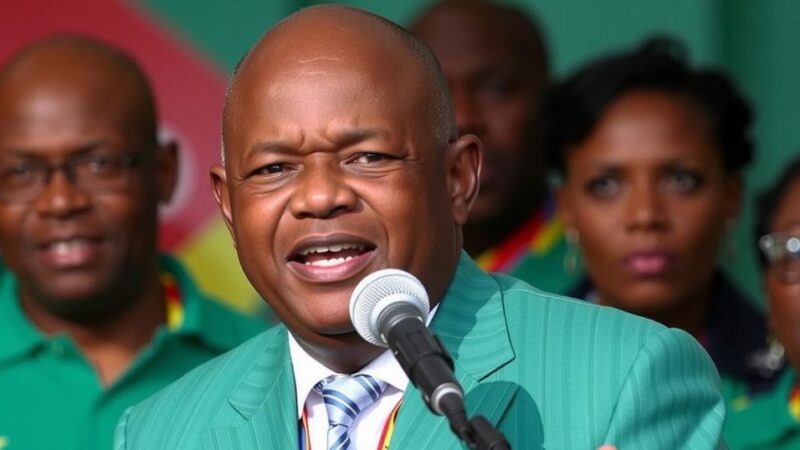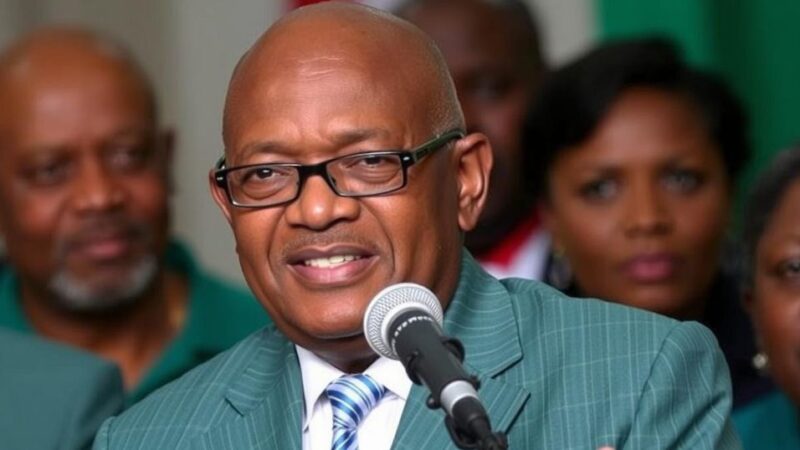As Election Day approaches, political columnists express uncertainty in their predictions regarding the outcomes, comparing current dynamics to past elections. The discussion reveals a significant reduction in swing states, heightened polarization, and the potential impact of key social issues such as reproductive rights on voter behavior. Noteworthy states under consideration include Nevada, Wisconsin, and Texas, with ongoing polling reflecting narrow margins between candidates. The overall consensus underscores the unpredictability of the current political climate, urging caution in forecasting electoral results.
As we approach Election Day, the political landscape remains highly fluid, prompting a mixture of predictions among columnists. Notable commentators, including James Hohmann and Karen Tumulty, express unease regarding their forecasts, drawing parallels to the 2016 election’s surprises. Hohmann has previously leaned toward Donald Trump but now finds uncertainty due to recent negative shifts in Trump’s campaign momentum. Tumulty recalls her own mistaken expectation of a female presidency in 2016, showcasing how unpredictable these elections can be. Eugene Robinson and others share sentiments of skepticism regarding prediction accuracy, illustrating how deeply polarized the current political climate is compared to previous elections. The predicted swing states have contracted from 15 in 2016 to merely seven in the present election cycle, indicating increasing voter polarization. Hohmann raises concerns over the influence of third parties, which played a significant role in the past, whereas this year’s third-party candidates pose little challenge. The columnists deliberate the implications of reproductive rights on voter sentiment, asserting that although issues like economic concerns are prevalent, reproductive freedom remains influential in the current election. Specific state predictions range widely, especially regarding Nevada, where internal party dynamics and union strength could sway the outcome. Wisconsin raises similar predictions, displaying uncertainty about whether Democratic Senator Tammy Baldwin will retain her seat. Texas, a traditional Republican stronghold, demonstrates potential vulnerabilities for Ted Cruz, despite his previous resilient performances in elections. Polling inconsistencies evoke further nervousness about the validity of forecasts, especially in crucial swing states like Pennsylvania, where a slight margin persists between the candidates. The discussion underscores a general theme of unpredictability in this election cycle, reminding commentators of past surprises and outcomes that defied their expectations. Ultimately, as Election Day draws near, columnists prepare to watch key electorates and voter sentiments, reflecting on the dynamics that will shape the future of American politics.
The article focuses on predictions surrounding the upcoming election in the United States, particularly highlighting the dynamics between the Democratic and Republican parties, the impact of voter sentiment on pivotal swing states, and the role of current social issues such as reproductive rights. The voices included are prominent opinion columnists who reflect on their past experiences and predictions related to elections, showcasing the inherent uncertainties in forecasting electoral outcomes. The discussion encapsulates a broader analysis of voting behaviors, polling trends, and the significance of key issues influencing the electoral process.
In summary, the upcoming election is fraught with uncertainty and volatility, as commentators grapple with the stark shifts in voter polarization and the predictive landscape. With fewer swing states and an array of complex factors—ranging from reproductive rights to historical voter behaviors—the election promises to be contested and unpredictable. As Election Day approaches, commentators remain observant of voter turnout and sentiments, anticipating outcomes that could challenge or reinforce traditional political norms in America.
Original Source: www.washingtonpost.com







